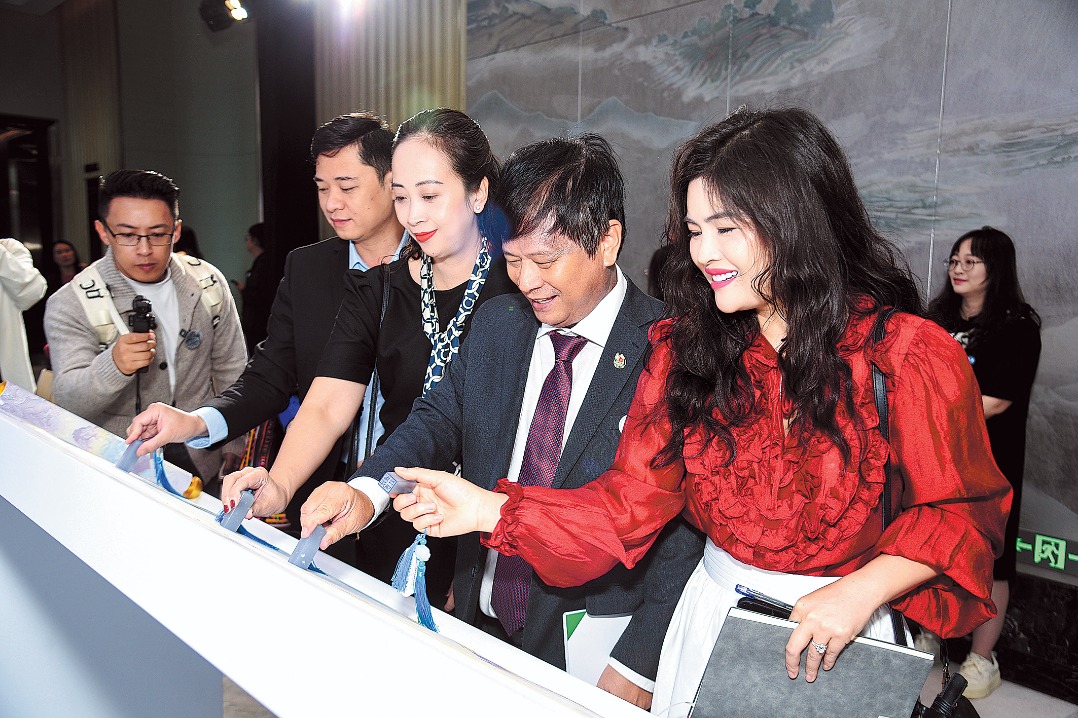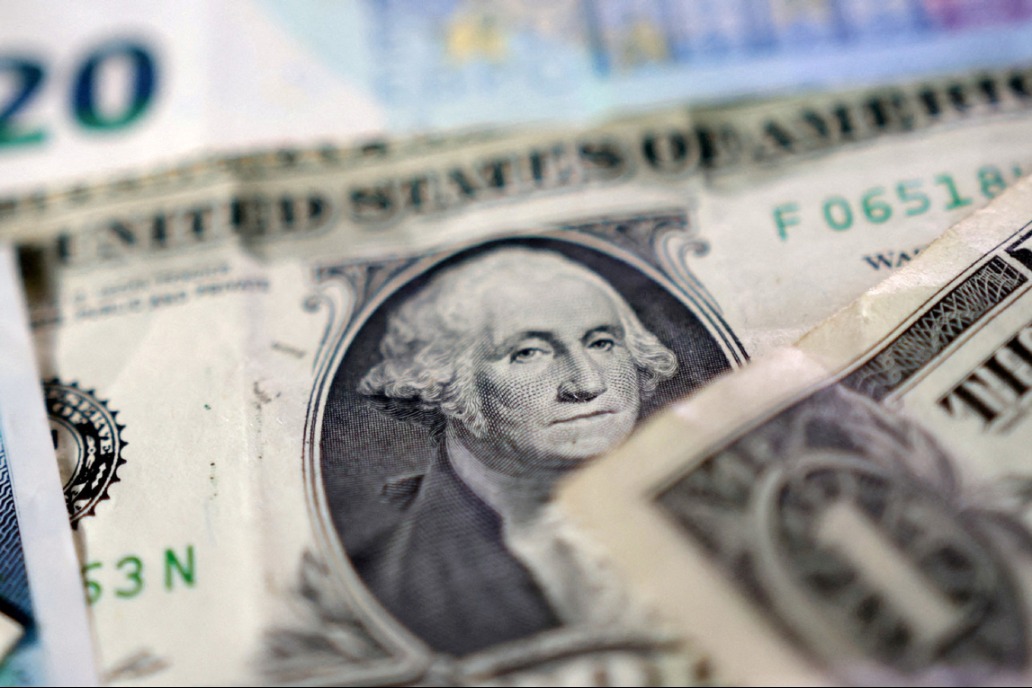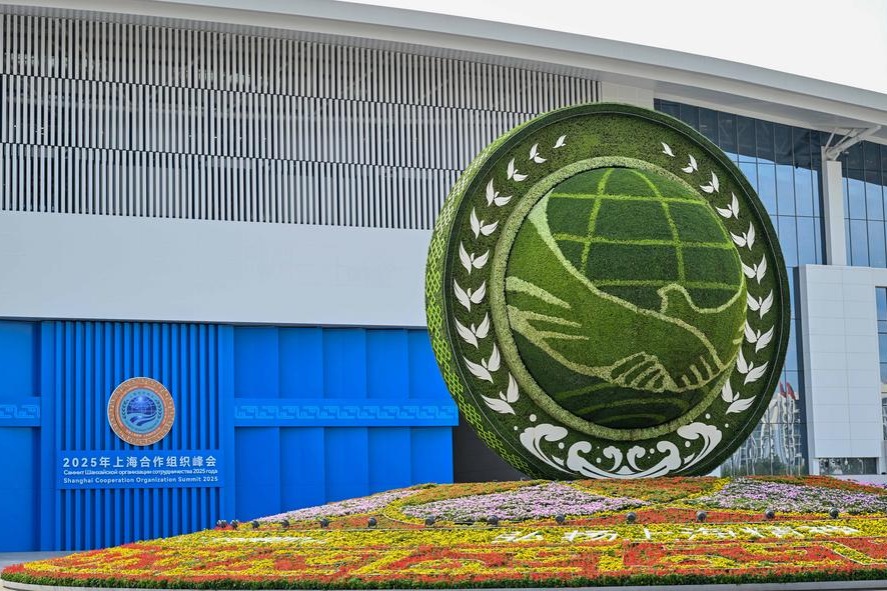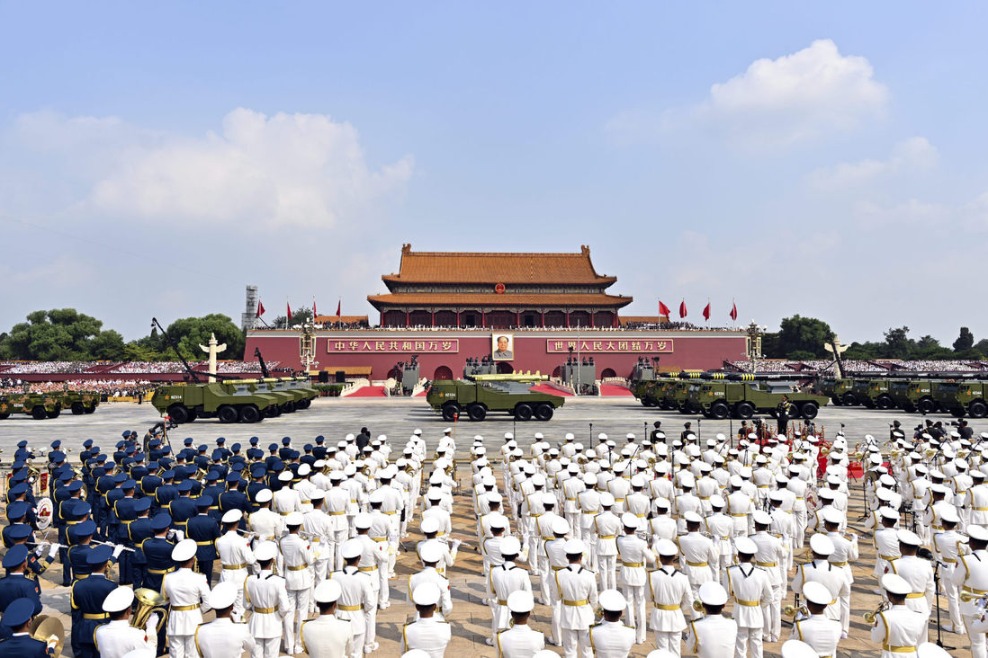Ready for take-off
With continued efforts and mutual commitment, China-Africa cooperation is poised to enter a golden era


This year marks the silver jubilee of the founding of the Forum on China-Africa Cooperation. Over the past 25 years, this partnership has witnessed remarkable progress. Since 2000, China-Africa trade has grown from about $10 billion to around $295 billion, positioning China as Africa's largest trading partner. This exponential growth has enabled African countries to diversify their trade relations beyond traditional partners. China has also emerged as one of the top five sources of foreign direct investment into Africa, with cumulative inflows reaching almost $50 billion between 2000 and 2024.
China's development financing has played a pivotal role in supporting Africa's infrastructure and industrial transformation. About $200 billion has been invested in sectors such as energy, transportation, telecommunications, and information and communications technology. People-to-people exchanges have also flourished — Ethiopian Airlines' passenger numbers between China and Africa rose from 50,000 to over 1 million between 2000 and 2020. Through platforms such as the FOCAC, the relationship has matured into an all-weather partnership grounded in multilateralism, mutual respect and win-win cooperation. FOCAC has become one of the most successful South-South cooperation platforms globally.
The Global South represents over 160 countries and 85 percent of the world's population. The imperative to eradicate poverty and build a prosperous and sustainable world is a shared responsibility.
China offers valuable lessons in policy learning. It has lifted nearly 800 million people out of abject poverty, transformed itself into the world's leading manufacturing economy, and become a global leader in green development. Moreover, China and Africa share a legacy of anti-colonial struggle and aspirations for national development. Policymakers, researchers and the private sector must collectively ensure that this partnership continues to deliver tangible results.
On this firm foundation, China-Africa cooperation has in recent years deepened and delivered more substantive outcomes — particularly in infrastructure development, job creation and industrialization. Drawing from my experience as both a policymaker and a researcher, I have closely witnessed this transformation. Ethiopia offers a compelling example. Chinese investors have played a central role in Ethiopia's industrialization, accounting for about 20 percent of all investment projects in the country. The Addis Ababa-Djibouti Railway, financed by Chinese loans, has become a cornerstone of East African regional integration and helped establish the largest economic and industrial corridor in Ethiopia.
In the energy sector, Chinese companies and financial institutions have supported landmark renewable energy initiatives, including the Adama and Aysha wind farms, multiple hydropower projects, and a 1,000-kilometer transmission line connecting the Grand Ethiopian Renaissance Dam to the national grid. When fully operational, this dam will generate 6,450 megawatts, making it Africa's largest hydropower project. Moreover, clean and renewable electricity now powers Ethiopia's rail systems, demonstrating a shared commitment to sustainability. Chinese-backed industrial parks have catalyzed local manufacturing, making Ethiopia the top destination for Chinese industrial investment on the continent. These developments have contributed to Ethiopia's position as one of Africa's fastest-growing economies for over the past 15 years between 2004 and 2019. Furthermore, China-Ethiopia relations have elevated to a strategic, cooperative and comprehensive level in 2017.
Beyond infrastructure and energy, development finance has been a key pillar of China-Africa cooperation. Between 2000 and 2025, the Chinese government and financial institutions made approximately $190 billion available to support Africa in developing and financing infrastructure and industrial transformation. Nearly 1,200 loans contributed directly to job creation, industrialization and economic diversification across the continent. However, since 2020, Chinese lending has slowed down, as debt burdens have increasingly constrained many African countries — a trend exacerbated by the COVID-19 pandemic. Despite these challenges, our research has shown that the so-called debt trap narrative is unfounded. Instead of retreating, we must explore innovative financing solutions that align with Africa's industrialization and green transition objectives.
Looking ahead, the prospects for China-Africa cooperation are boundless. Trade volumes could reach $300 billion by 2035. The African Continental Free Trade Area, launched in 2019, has laid the groundwork for one of the world's largest single markets, encompassing 1.4 billion people and a combined GDP exceeding $3.4 trillion.
By 2050, Africa's GDP is projected to reach $15 trillion, with per capita income exceeding $6,000.The continent's population is expected to double to 2.5 billion, with the lowest median ages. It is projected that about 1.6 billion will live in urban areas, two-thirds living in urban centers. This will require the creation of 25 to 30 million jobs annually — necessitating substantial productive investment and a growing market estimated at $16 trillion by 2050. Chinese enterprises must seize this opportunity, and African governments should reform investment promotion institutions and prioritize industrial policy across key value chains.
To fully unlock the potential of China-Africa industrial cooperation, African governments must implement significant reforms in their investment regimes. These include improving the tax system, ensuring policy predictability, safeguarding peace, and upholding the rule of law. Such reforms will not only benefit Chinese enterprises, but also support broader productive investment across the continent. Over the past 25 years, average annual Chinese FDI to Africa has stood at around $2.5 billion — this figure could quadruple with the right institutional conditions and ambitious joint vision. Importantly, Chinese investors and developers should also be encouraged to establish green industrial parks powered by renewable energy, serving as catalytic hubs for wider value chain development.
Furthermore, addressing trade imbalances is also essential. African exports must be enhanced in both quantity, composition and value. In parallel, cooperation should expand into new areas, including green energy, electric vehicles and digital technologies such as e-commerce, digital payments and central bank digital currencies.
With continued efforts and mutual commitment, China-Africa cooperation is poised to enter a golden era. Both sides must uphold rule-based multilateralism, oppose protectionism and unilateralism, and work toward reforming the global governance system. In doing so, they can advance the goals of the United Nations' 2030 Agenda, the Sustainable Development Goals and the Paris Climate Agreement, ensuring shared prosperity for future generations.

The author is former senior minister and special adviser to the prime minister of Ethiopia. The author contributed this article to China Watch, a think tank powered by China Daily. The views do not necessarily reflect those of China Daily.
Contact the editor at editor@chinawatch.cn.


































